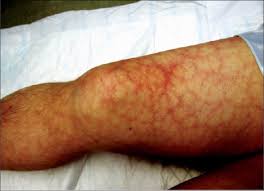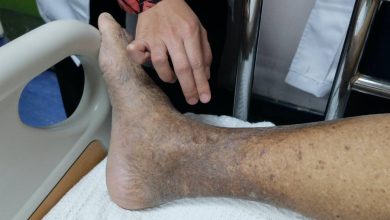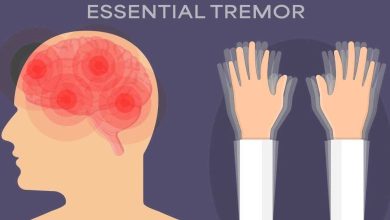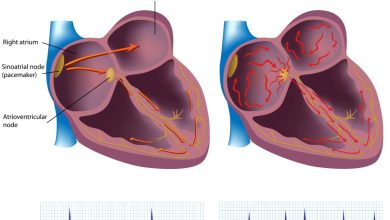Antiphospholipid Syndrome (APS) Causes, Symptoms, Diagnosis And Treatment

What Is Antiphospholipid Syndrome?
Antiphospholipid syndrome (APS), or often called Hughes syndrome, is an autoimmune, hypercoagulable state caused by antiphospholipid antibodies.
Antiphospholipid syndrome can be:
- Primary
Primary antiphospholipid syndrome occurs in the absence of any other related disease
Secondary antiphospholipid syndrome occurs with other autoimmune diseases, such as systemic lupus erythematosus (SLE).
In rare cases, APS leads to rapid organ failure due to generalised thrombosis; this is termed “catastrophic antiphospholipid syndrome” (CAPS) and is associated with a high risk of death.
Causes Of Antiphospholipid Syndrome:
APS is caused by antiphospholipid antibodies.
These antibodies, which the body mistakenly produces, bind phospholipids, a type of fat present in your blood that plays a key role in clotting.
The following risk factors increase the risk of developing APS:
- Having an autoimmune condition, such as:
- systemic lupus erythematosus
- Sjogren’s syndrome.
- Having certain infections, such as:
- syphilis
- HIV/AIDS
- hepatitis C
- Lyme disease.
- Taking certain medications, such as:
- hydralazine for high blood pressure,
- the heart rhythm-regulating medication quinidine,
- the anti-seizure medication phenytoin (Dilantin)
- The antibiotic amoxicillin.
- Having a family member with antiphospholipid syndrome.
It’s possible to have the antibodies associated with antiphospholipid syndrome without ever developing signs or symptoms.
However, if you have these antibodies, your risk of developing blood clots increases particularly if you:
- Become pregnant
- Remain immobile for a period of time (such as when you’re on bed rest or sitting during a long airline flight)
- Have surgery
- Smoke cigarettes
- Take oral contraceptives
- Have high cholesterol and triglycerides levels
Symptoms Of Antiphospholipid Syndrome:
Symptoms exhibited by those suffering from APS include:
- Blood clots in the legs (deep vein thrombosis, or DVT) that may travel to the lungs (pulmonary embolism)
- Repeated miscarriages or stillbirths and other complications of pregnancy, such as:
- premature delivery
- high blood pressure during pregnancy (preeclampsia)
- Stroke
- Blood clots in the arteries of the arms or legs (peripheral arterial thrombosis)
- Neurological symptoms.
Chronic headaches, including:
- Migraines
- Dementia
- seizures
- Cardiovascular disease. Heart valves can be damaged in people with antiphospholipid syndrome.
- Movement disorder, in which your body and limbs jerk uncontrollably (chorea)
- Cognitive problems, such as poor memory
- Sudden hearing loss
Diagnosis Of Antiphospholipid Syndrome:
APS is diagnosed via taking blood tests.
Blood tests for antiphospholipid syndrome look for at least one of the following three antibodies in the blood:
- Lupus anticoagulant
- Anti-cardiolipin
- Beta-2 glycoprotein I
To confirm a diagnosis of antiphospholipid syndrome, the antibodies must appear in the blood at least twice, in tests conducted at least 12 weeks apart.
Treatment Of Antiphospholipid Syndrome:
The following treatment options are available:
- Standard initial treatment
- Heparin
- Warfarin
- Aspirin
- Experimental treatment
- Statins
- New blood thinners (anticoagulants)
- Rituximab (Rituxan)
Related Articles:
Swimmers Itch Causes, Symptoms, Diagnosis and Treatment
Tularemia Causes, Symptoms, Diagnosis and treatment
Cold Sores Causes, Symptoms, Diagnosis and Treatment
Hemangioma Causes, Symptoms, Diagnosis and Treatment
Progeria Causes, Symptoms, Diagnosis and Treatment
Raynaud’s Disease Causes, Symptoms, Diagnosis and Treatment
Stye Causes, Symptoms, Diagnosis and Treatment
Castleman Disease Causes, Symptoms, Diagnosis And Treatment
Diaper Rash Causes, Symptoms, Diagnosis and Treatment
Cellulitis Causes, Symptoms, Diagnosis and Treatment
Tinea Versicolor Causes, Symptoms, Diagnosis and Treatment
Prickly Heat Causes, Symptoms, Diagnosis and Treatment
By : Natural Health News




